16 Foods You Should Never Store in the Fridge

The refrigerator may seem like the universal solution for keeping perishables fresh, but it isn’t always the best idea. In fact, there are many foods you should never store in the fridge.
Whether you’ve stocked up on tomatoes for homemade pasta sauce or you like to keep a stash of chocolate for when a sweets craving hits, it’s important to know the best way to keep these items fresh and flavorful.
Here are 16 surprising foods you should never store in the fridge.
Jump to Section
- Potatoes
- Tomatoes
- Onions and Garlic
- Avocados
- Bananas
- Melon
- Berries
- Stone Fruits
- Cucumber
- Winter Squash
- Honey and Molasses
- Bread
- Coffee
- Chocolate
- Learn To Use What You Have
1. Potatoes
Should potatoes be refrigerated? No, there is no need to refrigerate potatoes. In fact, you shouldn’t: Chefs have found that the texture and quality of these tubers decrease when stored below their optimal temperature of 45°F.
Instead of sticking them in the crisper, place them in a paper bag in a cool place like a cupboard or a root cellar if you have one. A pro-tip: Store your potatoes with apples to help keep them from sprouting.

2. Tomatoes
The age-old question for gardeners and home chefs alike: Should tomatoes be refrigerated? No, there’s no reason to refrigerate whole tomatoes. In fact, the cold temperatures can actually make your tomatoes mealy in texture and flavorless on the plate.
Store tomatoes at room temperature away from direct sunlight and allow them to come to peak ripeness for optimal flavor. If you have leftover tomato slices, place them in an airtight meal prep container and refrigerate for no more than two to three days before consuming them.

3. Onions and Garlic
There is no need to refrigerate onions or garlic. In fact, keeping them in the fridge may actually speed up how quickly they spoil.
Both susceptible to moisture and humidity, garlic and onions can go mushy and start growing mold when stored in the refrigerator. Instead, keep them in a cool, dark and dry environment stored in a well-ventilated container (like an open-weave basket).
Whole peeled garlic cloves should be used as needed, but if you have leftover sliced onion to spare, seal it well in an airtight container or with plastic wrap and refrigerate for up to 10 days.
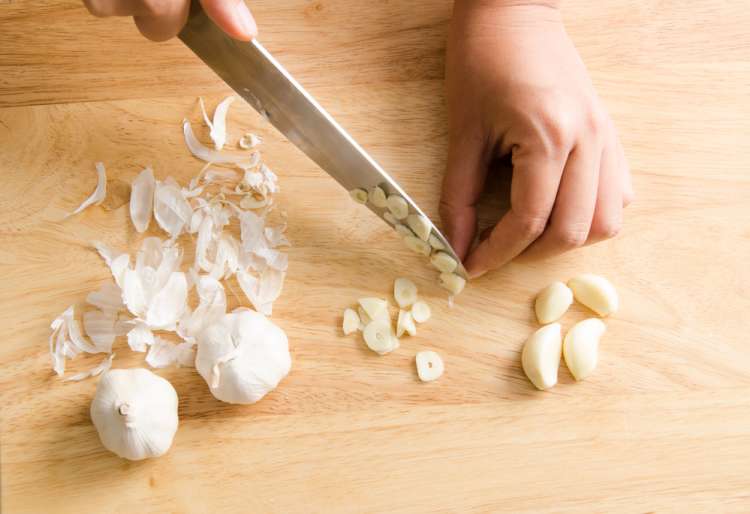
4. Avocados
The question of whether avocados should be refrigerated depends entirely on when you plan to use them. If you buy a near-ripe avocado from the store and plan to eat it soon, you should store it at room temperature, where it will quickly ripen to perfection.
If you aren’t planning on using the avocado just yet, or you buy in bulk, you can store them in the fridge whole to prolong their shelf life. Take them out to sit at room temperature for another day or two before they’ll be ready to use — longer if the avocado is particularly hard and green.

5. Bananas
Can you refrigerate bananas? You can, but you probably shouldn’t. Because bananas are tropical fruits, they aren’t big fans of cold temperatures. When you refrigerate bananas, you actually stop the ripening process, and you’ll find that the skin of your bananas will instead blacken and the fruit will go bad.
It's common to wonder, “Can you put bananas in the fridge?” But, the best option is to store them out on your kitchen counter and keep them at room temperature.
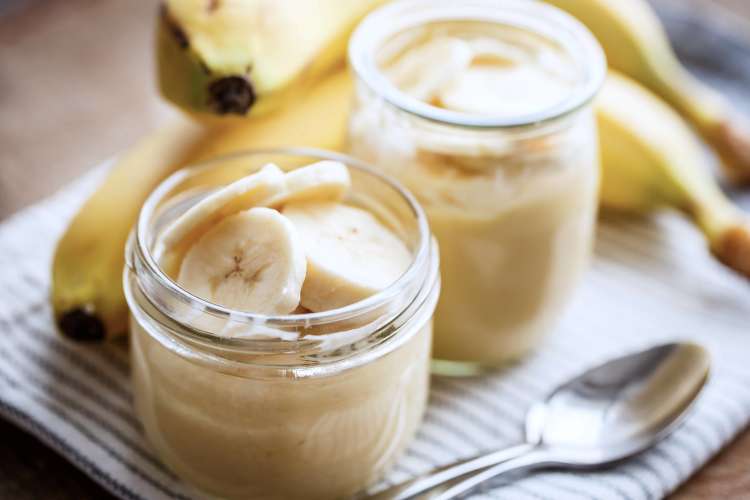
6. Melon
Whole melons not only take up a ton of space in the fridge, but they ripen more slowly there, too. Leave whole melons out on the counter to ripen for the best flavor.
Once you slice into it, you can wrap the cut side and place it in the fridge. Any leftover sliced melon pieces should be placed in an airtight container, refrigerated and eaten within three days.

7. Berries
Should strawberries be refrigerated? What about other berries? Most berry varieties don’t fare well when facing long storage times, and keeping them in the fridge won’t help you here. The cold, damp environment encourages them to become mushy and flavorless.
Store berries at room temperature and use them relatively soon after picking or purchasing, washing them only right before you intend to eat them.

8. Stone Fruits
The question of peaches should be refrigerated is a common one, along with various other stone fruits like apricots, nectarines and plums. If your stone fruits have not yet come to perfect ripeness, do not store them in the fridge. The chilly temperature will stall the ripening process altogether and lead to a mealy, mushy, flavorless bite.
Instead, leave firm stone fruit at room temperature for a day or two until they ripen and soften up. Once they reach this optimal sweetness, it’s okay to store them in the fridge to preserve them a little longer.
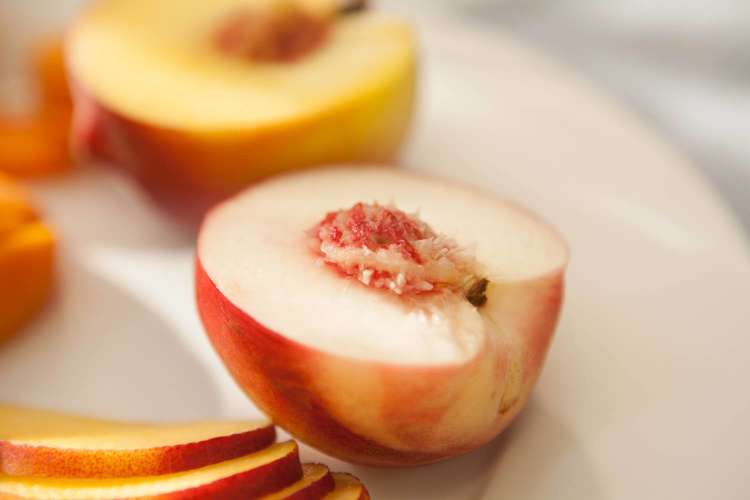
9. Cucumber
Should cucumbers be refrigerated? According to the Department of Plant Sciences at the University of California, cucumbers are chill sensitive at temperatures below 50°F and a few days in the fridge may actually accelerate their decay. If you prefer snacking on cold cucumbers, you can refrigerate them, but plan to eat them within three days.
Otherwise, store your cucumbers at room temperature, but be sure to keep them away from any bananas or tomatoes on the counter — cucumbers are highly sensitive to ethylene, a naturally occurring gas that causes produce to ripen and may spoil.

10. Winter Squash
Winter squash is abundant in the colder months, but despite its namesake, winter squash doesn’t need to be stored in frigid temperatures. Instead, most varieties do well in a moderately cool, dark, dry place like a root cellar or basement.
Aim for a spot that maintains temperatures around 50°F for optimal storage. If you plan on storing the squash for a few weeks, be sure to periodically rotate them so they don’t get rotten.
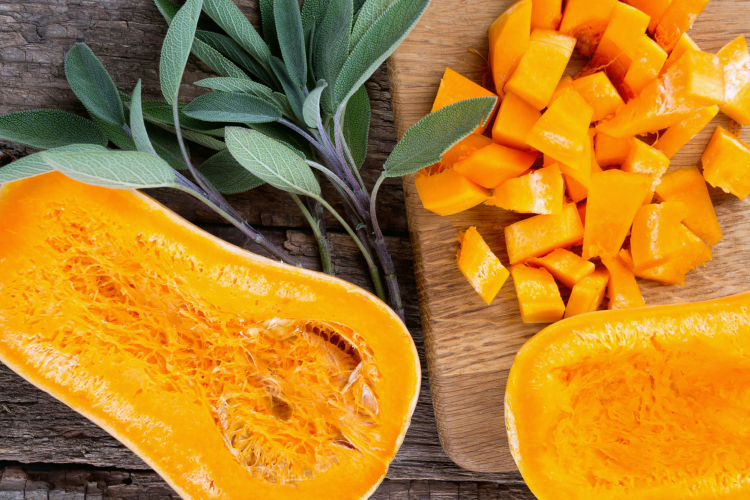
11. Honey and Molasses
Does honey need to be refrigerated? Nope, you can store this one in the pantry at room temperature. Honey’s high sugar content acts as a natural preservative. Archaeologists have found honey that is a thousand years old and is somehow perfectly preserved, proving that it has the incredible ability to sustain itself.
Storing honey in your ice box actually speeds up the process of its crystallization, making it really difficult to squeeze out into your cup of tea. You’ll also want to use dry, clean utensils when scooping honey out of a jar — another way you can avoid crystallization.
The same is true of molasses. The sweet, dark syrup is the byproduct of sugar-making. When placed in the fridge, it becomes too thick to pour or scoop. An opened jar of molasses can last for years in the pantry, as long as you’re careful to prevent excess moisture from seeping in.

13. Bread
Many people wonder, “Does bread last longer in the fridge?” And accordingly, many of us store our loaves of sourdough and pumpernickel in the fridge, thinking it will keep our bread fresher longer.
In reality, you shouldn’t refrigerate bread. Bread actually goes stale and dries out much faster in the fridge. Try keeping it in a bag or an airtight plastic container in a cool, dry place instead.

14. Coffee
Whether it’s in whole bean form, ground or brewed, you never want to store your coffee in the fridge.
Coffee beans tend to soak up the smells around them, including the stale crumbs that have fallen to the bottom of your fridge and the garlic kale you made last night — not exactly the flavor you want lingering in your first cup of the day.

16. Chocolate
Much like coffee, chocolate easily absorbs the smells and flavors of whatever is around it — definitely not ideal if you’re storing it in the fridge next to a wedge of Stilton or a pot of leftover curry from the night before.
Instead, keep your favorite sweet treat in a cool, dark cupboard sealed in an airtight container and away from your spices (or else you’ll just be absorbing the smells of your garlic powder, turmeric and fennel seed). This way, chocolate can keep fresh for several months.
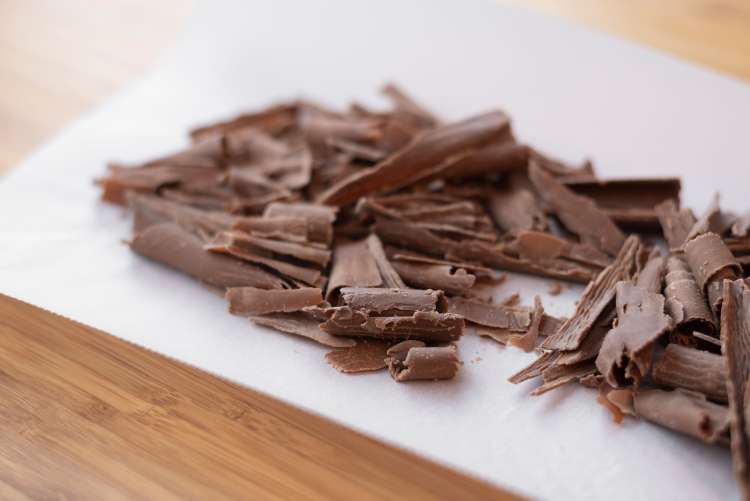
Learn To Use What You Have
As that bottle of long-expired salad dressing will confirm, the fridge shouldn’t serve as an indefinite storage solution for all of your perishable goods. Instead, you should aim to shop with purpose and buy food in quantities that you can use up before they spoil.
One way to help get the most out of all the ingredients you buy is to take cooking classes near you, where chefs can teach you a range of tips that will help you cook with whatever you have on hand.
If you need a little help in the kitchen, there are cooking classes in Dallas, Philadelphia and beyond, making it easy to find one that suits you in your area. Or, if you want to cook in your own kitchen, opt for a low-key night in with live online cooking classes from the comfort of home.
For even more culinary inspiration, check out other experiences happening on Cozymeal.

